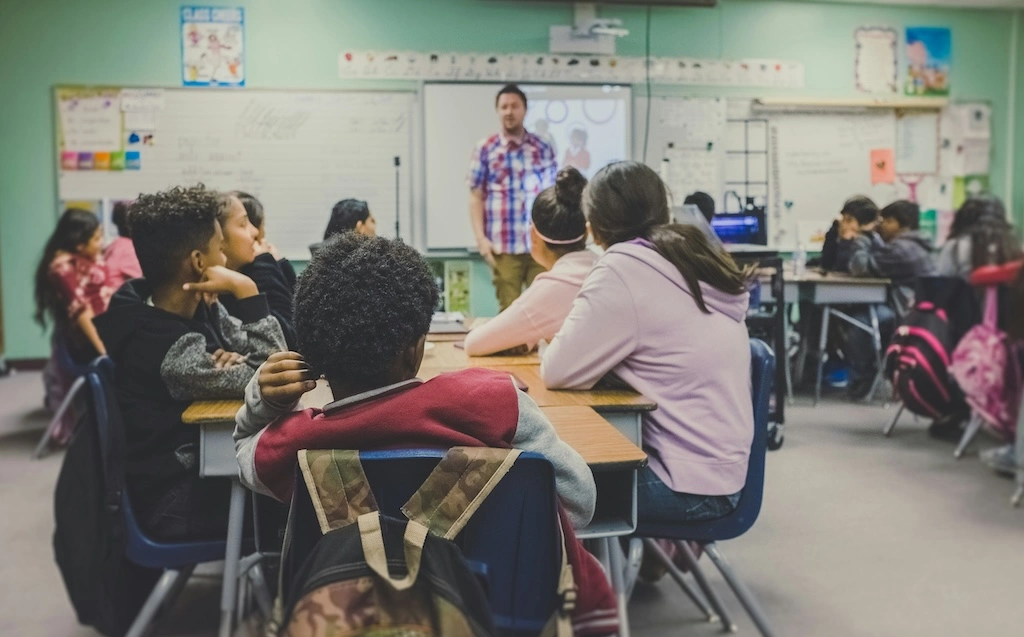Kickstart your teaching career with confidence by mastering parent-teacher interactions! Our guide offers invaluable tips for new teachers on conducting successful class meetings and building strong relationships with parents. Learn how to effectively communicate, set clear rules, and handle sensitive issues with tact and discretion. Discover the art of organizing class meetings, from preparing the agenda to following up with parents. Find out how to create a positive and respectful atmosphere, engage parents in the educational process, and handle any challenges that come your way. Whether it's your first class meeting or improving ongoing communication, this guide is an essential resource for beginning teachers navigating the vital aspect of parent-teacher collaboration.
If you're a beginning teacher, you've stood in front of students for a couple of hours at practicum, had some two-week hospital-assistant practice and one long-term practice during student teaching, maybe. But standing in front of parents and dealing with them is probably something you'll only do during the actual onboarding process. And that's not usually what school prepares you for during your studies.
Class meetings
- I do not underestimate the content or the time of preparation.
- I have the class meeting agenda projected on a screen via a data projector.
- When I "vote" on an issue, I add the suggestion or conclusion to the original agenda, as well as any suggestions and insights or additions to the agenda from parents.
- after class meetings, I mail the complete document to all parents - I always use hidden copies of the addressees in mass class communications.
- I no longer keep a "class meeting book" but there are some schools that still require it across the board - try asking the administration for reasons.
- I don't make coffee or tea during mass class meetings. Alternatively, I refer to the school's drinking regime (vending machine, water barrels...)
- I try to make sure that we part with understanding and without uncertainty and question marks. I'm glad it's almost always with a smile too.
What's worked for me?
- From the very first meeting with the parents - by email or in person, I come across as a person with respect and dignity, but as a professional. I am never arrogant, superior, or aggressive. I consider myself communicative, polite, open-minded and with a sense of humor, but also with rules that are in the interest of our synergy and with the children in mind.
- To be prepared, to have documents and information - about pupils, school, events,... or to know who in the school is competent for the given things and questions and where to refer parents if the question or problem goes beyond your classroom competence, or to know where to get the information and then communicate it to the parents if you so agree.
- I act openly and call things by their real names.
- Class meetings are here also because I set the rules of communication between me and the parents (emails, mobile phones, personal consultations...).
- Parents know when and where to reach me before or after school if needed.
- I try to discuss and resolve issues or personal sensitivities somewhere other than between the classroom door and the hallway. I value privacy and discretion in sensitive matters.
- If a problem arises, I solve it, I don't overlook it, I don't condemn it.
- I keep my word and deadlines.
- I respect and expect respect and support from parents for the sake of the children (I give an example in 1st class meetings: I am a non-smoker, I understand that someone in the children's families may be a smoker, but we can talk about lifestyle in class and the children can come home with "wisdom: but the teacher said that...". Please refrain from making any angry remarks about me. Don't sink me, I'll never sink you either, even though we may disagree with each other... we usually then all send each other an understanding look that we know what the example is about.
- Tell parents - "trust, but not blindly, or check!" Children can sometimes, out of fear or forgetfulness or imagination, make up believable or unbelievable stories in which you can play a positive or negative leading or supporting role.
- Explain - what, why and when you will assign homework (some of the child's unfinished work may not be normal homework and then the parent wonders "he has so much homework" etc.)
- I inform about school and extracurricular events well in advance.
- I confirm the collected payment amounts in my diary, pupil's diary, or by e-mail. (Note: I have my own stamp: "I have received......... CZK. Thank you. )
Not only class meetings but also personal consultations
- Already sometimes in schools they completely replace or supplement class meetings.
- I have a schedule of dates where parents sign up two weeks in advance.
- I always have my class portfolio, writing materials and math workbook ready for the meeting, or topics I need to discuss with parents.
- They are usually in a more personal, open and informal atmosphere than mass class meetings with all parents, which is probably why they are being abandoned in schools.
Cooperation opportunities
- At meetings or in person, I ask parents or invite them to possible cooperation.
- I ask for a possible tip for an interesting event or trip that they would recommend, they are happy to "participate" in the class program.
- Sometimes they themselves offer promotional items for class competitions or a visit to their workplace.
- Mothers and grandmothers bake deliciously and like to let the children have healthy snacks.
- It's good to have a chaperone at an after-school event, and it's fine to arrange with some parent volunteers. Usually two or three will volunteer themselves after the first few meetings and then the others are persuaded at home by the children that they want their mum or dad to go another time.
- The creative workshops full of skilful hands and ideas are amazing.
- I experienced going on a Saturday trip in our own cars and minibus.
It has been my pleasant experience that parents usually see for themselves what you bring and offer to their children and then it comes back to you that they too want to help you, their children and the class. Definitely don't task them or overload them. You are the best judge of what class of parents you are dealing with and what you can afford to ask them politely and respectfully. It certainly can't all be done in September. Relationships and collaborations are built and built and you start and create the foundation.



